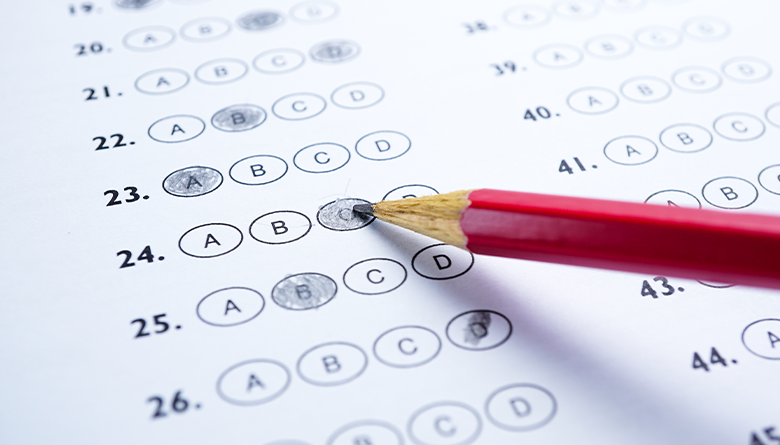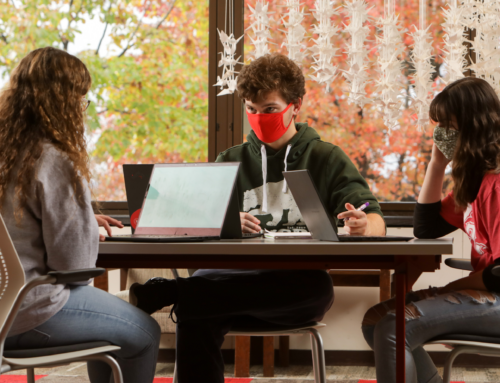By Regina Stracqualursi
When students take a test, their teacher generally remains in the classroom to ensure academic integrity and answer questions. But what happens when the teacher is not in the room? Would you feel tempted to look up an answer on your phone or ask your classmate questions? For many students, the answer is “yes” — schools across the nation experienced an uptick in cheating since the migration to remote learning last spring. A team of engineers from Rensselaer Polytechnic Institute recently demonstrated the effectiveness of a method aimed to reduce cheating among remote students.
The research, published in npj Science of Learning, explains “distanced online testing,” an approach to testing that reduces the ability of students to cheat on an exam while still maintaining their privacy. The method serves the same questions to all students during an exam, but in a varying order based on each student’s level of mastery. So, for example, students with a lower level of mastery would receive questions prior to their higher-level peers. This would reduce the lower-level students’ ability to receive help from their higher-level classmates.
The researchers assessed mastery levels based on a variety of criteria, including grade point averages, SAT scores, midterm scores, and other pieces of available data to assess academic performance. The results of their published research showed that “distanced online testing” greatly reduced collusion among students as compared to tests administered in a traditional manner.
The research team includes Mengzhou Li, a graduate student in biomedical engineering; Ge Wang, Hisham Mohamed, and Uwe Kruger, faculty members in the Department of Biomedical Engineering; and Lirong Xia, professor of computer science; with support from a team of teaching assistants and graduate students. The team is currently planning the development of a platform that would make this method available to educators beyond Rensselaer.



